Ratnesh Sharma
Taking Second-life Batteries from Exhausted to Empowered using Experiments, Data Analysis, and Health Estimation
Feb 29, 2024Abstract:The reuse of retired electric vehicle (EV) batteries in electric grid energy storage emerges as a promising strategy to address environmental concerns and boost economic value. This study concentrates on devising health monitoring algorithms for retired batteries (BMS$_2$) deployed in grid storage applications. Over 15 months of testing, we compile, analyze, and publicly share a dataset of second-life (SL) batteries, implementing a cycling protocol simulating grid energy storage load profiles within a 3 V-4 V voltage window. Four machine learning-based health estimation models, relying on BMS$_2$ features and initial capacity, are developed and compared, with the selected model achieving a Mean Absolute Percentage Error (MAPE) below 2.3% on test data. Additionally, an adaptive online health estimation algorithm is proposed by integrating a clustering-based method, limiting estimation errors during online deployment. These results constitute an initial proof of concept, showcasing the feasibility of repurposing retired batteries for second-life applications. Based on obtained data and representative power demand, these SL batteries exhibit the potential, under specific conditions, for over a decade of grid energy storage use.
Adaptive Traffic Control with Deep Reinforcement Learning: Towards State-of-the-art and Beyond
Jul 21, 2020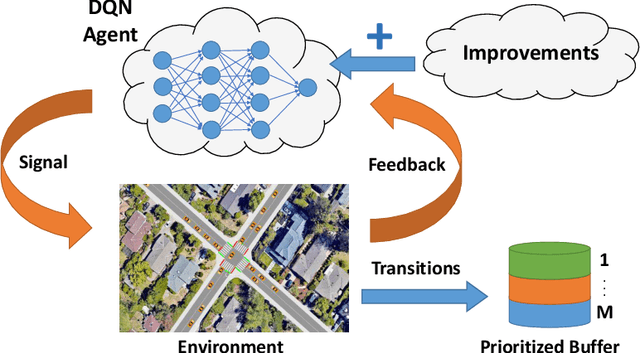

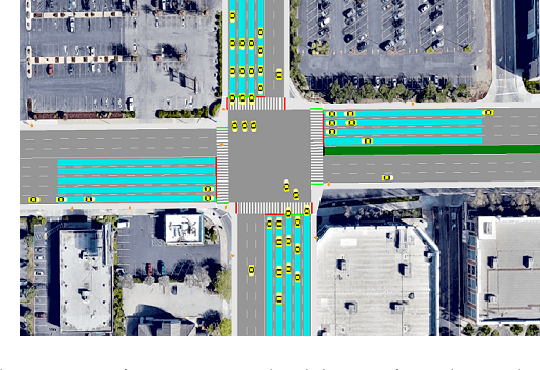
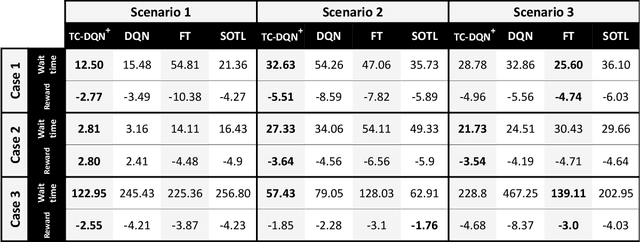
Abstract:In this work, we study adaptive data-guided traffic planning and control using Reinforcement Learning (RL). We shift from the plain use of classic methods towards state-of-the-art in deep RL community. We embed several recent techniques in our algorithm that improve the original Deep Q-Networks (DQN) for discrete control and discuss the traffic-related interpretations that follow. We propose a novel DQN-based algorithm for Traffic Control (called TC-DQN+) as a tool for fast and more reliable traffic decision-making. We introduce a new form of reward function which is further discussed using illustrative examples with comparisons to traditional traffic control methods.
Coordination of PV Smart Inverters Using Deep Reinforcement Learning for Grid Voltage Regulation
Oct 14, 2019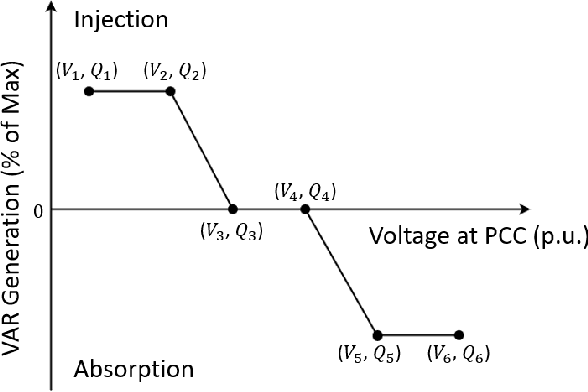

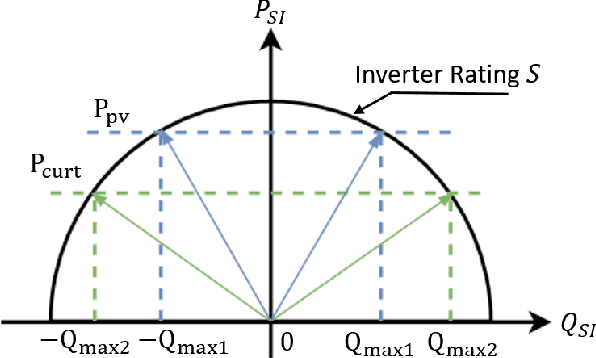

Abstract:Increasing adoption of solar photovoltaic (PV) presents new challenges to modern power grid due to its variable and intermittent nature. Fluctuating outputs from PV generation can cause the grid violating voltage operation limits. PV smart inverters (SIs) provide a fast-response method to regulate voltage by modulating real and/or reactive power at the connection point. Yet existing local autonomous control scheme of SIs is based on local information without coordination, which can lead to suboptimal performance. In this paper, a deep reinforcement learning (DRL) based algorithm is developed and implemented for coordinating multiple SIs. The reward scheme of the DRL is carefully designed to ensure voltage operation limits of the grid are met with more effective utilization of SI reactive power. The proposed DRL agent for voltage control can learn its policy through interaction with massive offline simulations, and adapts to load and solar variations. The performance of the DRL agent is compared against the local autonomous control on the IEEE 37 node system with thousands of scenarios. The results show a properly trained DRL agent can intelligently coordinate different SIs for maintaining grid voltage within allowable ranges, achieving reduction of PV production curtailment, and decreasing system losses.
BAFFLE : Blockchain based Aggregator Free Federated Learning
Sep 16, 2019
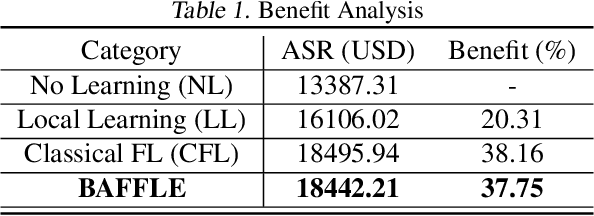

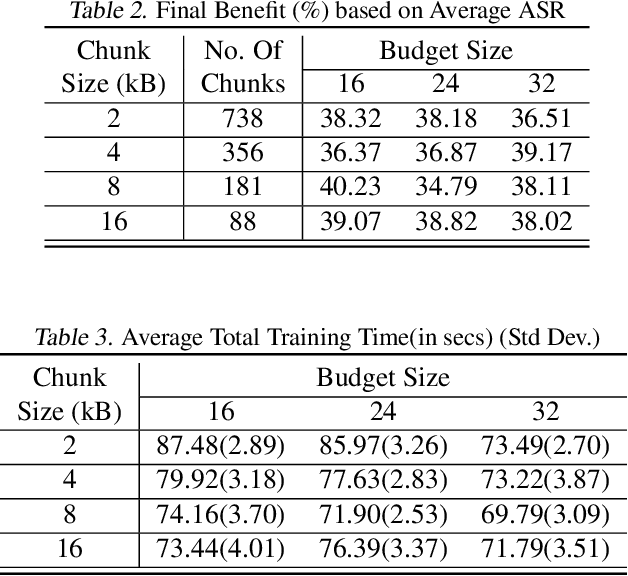
Abstract:A key aspect of Federated Learning (FL) is the requirement of a centralized aggregator to select and integrate models from various user devices. However, infeasibility of an aggregator due to a variety of operational constraints could prevent FL from being widely adopted. In this paper, we introduce BAFFLE, an aggregator free FL environment. Being powered by the blockchain, BAFFLE is inherently decentralized and successfully eliminates the constraints associated with an aggregator based FL framework. Our results indicate that BAFFLE provides superior performance while circumventing critical computational bottlenecks associated with the blockchain.
Energy Predictive Models with Limited Data using Transfer Learning
Jun 06, 2019



Abstract:In this paper, we consider the problem of developing predictive models with limited data for energy assets such as electricity loads, PV power generations, etc. We specifically investigate the cases where the amount of historical data is not sufficient to effectively train the prediction model. We first develop an energy predictive model based on convolutional neural network (CNN) which is well suited to capture the interaday, daily, and weekly cyclostationary patterns, trends and seasonalities in energy assets time series. A transfer learning strategy is then proposed to address the challenge of limited training data. We demonstrate our approach on a usecase of daily electricity demand forecasting. we show practicing the transfer learning strategy on the CNN model results in significant improvement to existing forecasting methods.
 Add to Chrome
Add to Chrome Add to Firefox
Add to Firefox Add to Edge
Add to Edge